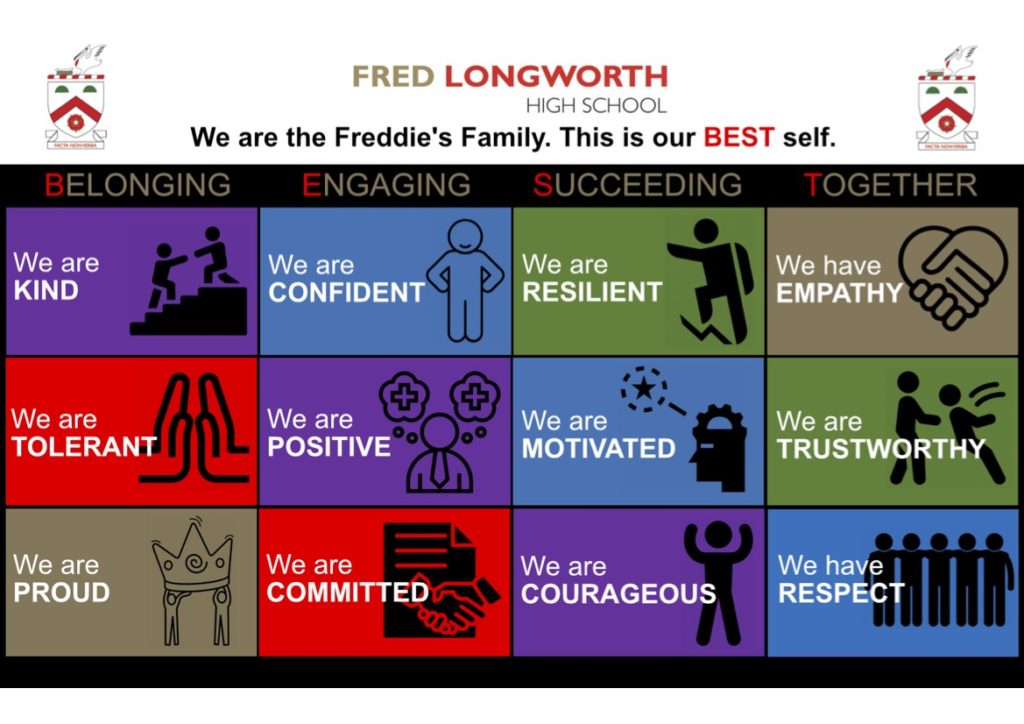Character - Motivation
‘The process that initiates, guides, and maintains goal-oriented behaviours’.
Character - Motivation
‘The process that initiates, guides, and maintains goal-oriented behaviours’.
Character - Motivation
‘The process that initiates, guides, and maintains goal-oriented behaviours’.
Home > FLHS BEST Character Values > Character – Motivation
Over the next few weeks in assemblies as part of our work on developing character we will be focusing on Motivation – linking this to ‘how can we achieve and be successful’. Key information on motivation and tips for developing it are included below.

Some of the following information is provided from the website ‘Verywell Mind’.
What Is Motivation?
Motivation is the process that initiates, guides, and maintains goal-oriented behaviours. It is what causes you to act, whether it is getting a glass of water to reduce thirst or reading a book to gain knowledge. In school motivated students are more likely to succeed than those who lack this aspect of character.
Motivation involves the biological, emotional, social, and cognitive forces that activate behaviour. In everyday usage, the term “motivation” is frequently used to describe why a person does something. It is the driving force behind human actions.
Types of Motivation
Different types of motivation are frequently described as being either extrinsic or intrinsic:
- Extrinsic motivations are those that arise from outside of the individual and often involve rewards such as trophies, money, social recognition, or praise.
- Intrinsic motivations are those that arise from within the individual, such as doing a complicated crossword puzzle purely for the personal gratification of solving a problem.
Intrinsic motivation is seen as the most powerful type of motivation as it can be long lasting and have the greatest long term impact. Can we develop greater intrinsic motivation in our children?
Uses of Motivation
There are many different uses for motivation. It serves as a guiding force for all human behaviour, but understanding how it works and the factors that may impact it can be important in a number of ways.
Understanding motivation can:
- Help improve the efficiency of people as they work toward goals
- Help people take action
- Encourage people to engage in health-oriented behaviours
- Help people avoid unhealthy behaviours such as risk-taking and addiction
- Help people feel more in control of their lives
- Improve overall well-being and happiness
Impact of Motivation
Anyone who has ever had a goal (like wanting to lose 20 pounds or run a marathon) probably immediately realizes that simply having the desire to accomplish something is not enough. Achieving such a goal requires the ability to persist through obstacles and endurance to keep going in spite of difficulties.
There are three major components of motivation: activation, persistence, and intensity.
- Activation involves the decision to initiate a behaviour, such as enrolling in a psychology class.
- Persistence is the continued effort toward a goal even though obstacles may exist. An example of persistence would be taking more psychology courses in order to earn a degree although it requires a significant investment of time, energy, and resources.
- Intensity can be seen in the concentration and vigour that goes into pursuing a goal. For example, one student might coast by without much effort, while another student will study regularly, participate in discussions, and take advantage of research opportunities outside of class. The first student lacks intensity, while the second pursues their educational goals with greater intensity.
The degree of each of these components of motivation can impact whether or not you achieve your goal. Strong activation, for example, means that you are more likely to start pursuing a goal. Persistence and intensity will determine if you keep working toward that goal and how much effort you devote to reaching it.
Tips for Finding Motivation
All people experience fluctuations in their motivation and willpower. Sometimes you might feel fired up and highly driven to reach your goals, while at other times you might feel lacking in energy and drive or unsure of what you want or how to achieve it.
Even if you’re feeling low on motivation, there are steps you can take that will keep you moving forward. Some things you can do include:
- Adjust your goals to focus on things that really matter to you
- Remind yourself why you have set these goals and why they are important to you
- If you’re tackling something that is just too big or too overwhelming, break it up into smaller steps and try setting your sights on achieving that first step toward progress
- Remember to give yourself time off work and study to reward yourself for your hard work
- Remind yourself about what you achieved in the past and what where your strengths lie.
- Try to think positively about past successes and give yourself ‘positive self-talk’ – this can be very powerful

